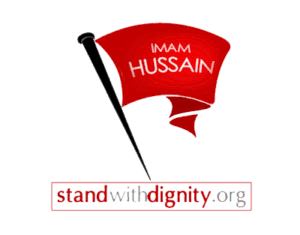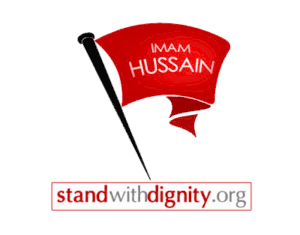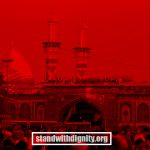By Syed-Mohsin Naquvi
Today, in the civilized and free world, there is hardly anyone who has not come in contact with Muslims or at least, heard of Islam and Muslims. For the past decade, Islam and Muslims have been receiving negative light in the Western media. The wrongdoings of groups, such as Al-Qaeda and ISIS, are being wrongfully reflected on the larger Muslim community of the world.
Islam began in Arabia in the 600s with the Prophet Muhammad’s call for humanity and social justice. Muhammad’s message was unique and powerful. He came at a time when people were burying their daughters alive, worshipping random objects, and living lives without any purpose. He brought a message of justice that elevated the status of women in Arabia, advocated critical thinking and knowledge, and taught others how to live with morality and integrity.
Sadly, after Muhammad’s death in 632, his ethical mission took a very political turn. The next fifty years were filled with stories of conquest, mainly in the Middle East, which spread Islam far and wide. Internally, the movement was split in two main groups. This split is evident when we examine how the political position was taken from the family of the Muhammad. As Muhammad’s body lay inside his house waiting for a worthy funeral and with his progeny, the Ahlul-Bayt, surrounding him in grief, a self-seeking political group hurried into town and held a meeting to decide the political future of the community, thus leaving Muhammad’s family completely out of the process. What they missed was that Islam was never meant to be a religion of political influence or power. Rather, it was meant to be a beacon of hope for mankind that spread justice and righteousness into every aspect of human life.
After the death of Muhammad and up until now, supposed ‘Muslims’ have been misusing the Qur’an for their own political interests and have abandoned the true teachings of Muhammad. Before his death, he stated, “I am leaving among you two valuable things, Al-Qur’an, the Book of Allah and the Ahlul-Bayt, my progeny. Attach yourself to these two and you shall never ever go wrong” The Qur’an and Ahlul-Bayt are not mutually exclusive. One cannot believe in one without believing in the other. The reason for this is because the blood relatives of Muhammad were the perfect translators of the Qur’an. If one tries to interpret the Qur’an without the knowledge they had, one will become indulged in misinterpretations, as we see today.
The political maneuvering described earlier was hidden under the conquests and apparent spread of Islam across the world in the early centuries. When Europe emerged from its darkness, industrialization took over, modern weapons appeared and firearms were produced, European nations took to the seas and began looting and conquering other lands. The Muslim empire too became a target. The Muslim community saw a decline in its political and economic power. In the frustration of loss of power and helplessness, Muslims began reacting in irrational ways. Those early wrongs, which had become part of Islamic ideology and were hidden under the blanket of great Muslim conquests and the spread of the Islamic civilization, started showing up. Today, we see such groups as Al-Qaeda and ISIS attempting to justify their cruel and inhumane acts from the Qur’an. This results in Muslims as a whole seen as supporters of such terrorism and practicing a religion, which condones that kind of activity, which is in fact completely false.
What is the root cause of this mindset? The root cause, as explained, is the abandonment of the true beliefs and teachings of Muhammad by a large portion of the Muslims. Rather, a majority of Muslims refuse to look into history to see how the political power shifted after Muhammad’s death. They moved away from the holistic teachings of justice and moved towards a corrupt mentality that revolved around political power and control, as seen until today. However, the family of Muhammad, realizing their own purpose in life in interpreting the correct Islamic ideology and explaining the various Qur’anic verses in their correct context, were always at work teaching and presenting sacrifice after sacrifice to make sure the message of justice against immorality continued.
The first generation of Muhammad’s family consisted of his immediate blood relatives. Muhammad had one daughter, Fatima Zahra, who was married to his paternal cousin, Ali, son of Abu Talib. The couple had four children, two sons Hasan and Hussain, and two daughters, Zaynab and Kulthum. These children had seen Islam taking shape inside their household. The boys particularly would spend time in the mosque watching their grandfather lecturing and conveying teachings of justice. When they grew up, they fought alongside their valiant father in the battlefield defending the community against all outside forces. After the assassination of Muhammad’s successor Ali in the mosque of Kufa, Iraq, his elder son, Hasan was proposed for the caliphate. That advent failed after six months due to the machinations of a provincial governor who had belonged to the tribe of Banu Umayya, the archrivals and avowed enemies of Islam. Hasan was mysteriously poisoned to death a few years later. Now the head of this family was Hussain. He tried to live peacefully and quietly held his family together.
When a new Umayyad Caliph succeeded to the throne, he inquired about whom in his kingdom had not approved of his succession to the caliphate. There were a handful of prominent people in the realm who were identified as such. Most of them were either subjugated politically, or bought off, except one. That was Hussain, the surviving leader in the family of Muhammad. Although, he himself had never expressed any opinion one way or another, there were rumors across towns and villages that there was one group of people living in the south of Iraq who could incite Hussain to take action against the Caliph because of his openly flouting Islamic laws and values. The Caliph in Damascus, Syria, approached Husayn through the governor of Madinah, to convince him to express public support for the Caliph. If he refused, he would be killed and beheaded.
This is a long historical event, but, at the same time, it is a very short story. A tyrant wants absolute submission from every citizen in his area of control to declare the tyrant as legitimate, worthy, and generally good. Hussain, son of Ali, refuses to submit and leaves home with a handful of his family members including women and children. The dissenting group is rounded up and cornered at a desolate piece of barren land by a large army. He refuses to pay allegiance to the tyrant who was claiming to be Muslim. If Husayn were to pay allegiance, the image of Islam would have been tarnished forever. In order to preserve the true Islam of the Prophet, Husayn sacrificed his life to fight against injustice. What could be more primitive in the situation of a human confrontation, but what could be more modern and topical? Beginning from Cain and Abel, to Moses and the Pharaoh, to Jesus Christ and the Roman Empire, and the Jewish establishment to John the Baptist and Herod Antipas, the confrontation of Husayn with Yazeed is yet another such situation.
This tragedy is named The Battle of Karbala and is a historical event that took place in 680 A.D. in Karbala, Iraq, where Hussain (spelled variously as Hussain , Hussein, etc.), grandson of Muhammad, was brutally killed by the orders of Yazeed, the Umayyad Caliph of the time, after having fought desperately with a handful of his companions. Initially, Hussain had not set off to fight. He journeyed across to meet those who said they would support him in the city of Kufa. However, these people were already in the corrupt and materialistic grasp of Yazeed and were willing to give Hussain and his family up for power and wealth. With Hussain were his companions, women of the family, and children. Water supply was cut off from Hussain’s camp for more than three days before Hussain had to fight for righteousness. The children and women of the camp were taken as captives after all the men were killed in the most brutal ways. The only surviving male of this tragedy was Hussain’s son, Ali Zaynul Abideen, who was ailing. Many children were killed and women were tortured. How could the grandson of Muhammad see his religion be tarnished without resisting and preserving the true justice that Islam teaches? How could he see his religion be tarnished by those who namely say they are “Muslims” but do not uphold a single value that Islam advocates? He couldn’t.
Imagine it, the surviving grandson of Muhammad, Hussain, set out to correct the immoral, when he was pressed by Yazeed to accept him as the legitimate Caliph of the Islamic kingdom. Hussain left his home with a handful of his close relatives, women, children and a handful of his friends either to find a way to avoid any confrontation or to collect enough support to dislodge Yazeed from the seat of caliphate. As later events would tell us, Hussain, in his historic step, was determined to bring reform or give his life in the cause of preserving Islamic values and defend the human rights of the common man against tyranny.
The family of Muhammad, even though dispossessed politically, was always in the forefront to uphold the true Islamic values at the expense of their personal safety, life and honor. It is a curious fact of early Islamic history that a mere fifty years had not passed after the mission began that one of the most corrupt, debauch and evil person of the clan of Umayya named Yazeed became the Caliph of the Islamic kingdom. This goes to show how the first political leaders after the prophet were only looking for power, not leading the people towards spirituality or moral uplifting. If the true family of Muhammad were to lead, Islam would have never seen such a horrific incident.
The very first reaction from a survivor of a brutal and wanton massacre is usually revenge. The family of Muhammad, being the true spiritual heirs of the Prophet of Islam, converted that passion of revenge into something that history had not seen before. They began teaching the Muslim community to adopt a practice of public lamentation and remembrance of the martyrs extolling their virtues, their valor in the battlefield, defending their values, their kindness towards the downtrodden and generosity in helping the poor and the dispossessed and describing their sufferings in their struggle for preserving man’s basic rights. On the other hand, they left a whole corpus of prayers for the faithful that would bring them closer to their Lord in times of misery, misfortune and mainly facing wrongdoing and tyranny. Imam Hussain’s mission is especially important in today’s day and age. With groups such as ISIS and Al-Qaida claiming to be followers of Islam, we can look back to the Tragedy of Karbala and see that Hussain was the first to deny these groups the right to be called Muslim. Hussain and his companions laid down their lives to draw a line between a ‘politically-motivated, blindly following’ Islam and the true Islam. Yazeed was the past, but ISIS is the present. Hussain’s mission overpowered Yazeed’s corrupt and unethical thirst for power and it continues in the hearts of Hussain’s followers today.
Ali Zaynul Abideen, his son Mohammad Baqir, and his grandson Ja’far as-Sadiq, belong to that second generation of Ahlul-Bayt who made all that possible. Mohammad Baqir encouraged the poets of his time to write devotional poetry organizing public forums where that poetry of lamentation and extolling the virtues of the martyrs would be recited. J’afar as-Sadiq organized the Matam/Latam (symbolic beating of chests by devotees in public), which you are watching today in this procession. The two surviving sisters of Hussain, Zaynab and Kulthum started this practice of lamentation. It is because of that effort that the tradition has survived to this day.
Ali Zaynul Abideen, having suffered greatly at the hands of the tyrannical ruler’s army, having seen the brutal killings of his father, uncles, nephews and friends, charted a future course of action for himself. He lived in the city of Madinah spending time in prayers and supplications and teaching a handful of his followers who had gathered around him after the Tragedy of Karbala. He has left a set of prayers which are unmatched by any other document in its genre in heartfelt devotions, sublime thoughts in seeking a communion with God, bringing about the most pristine expressions of human consciousness towards the Almighty and inner feelings of a true believer who, on one hand, is passionate in communicating with his Creator, and on the other hand, guiding his fellow human beings in how to create a stable, just, and humane society on this earth.
The historic document, known as The Treatise On Rights, addresses every aspect of life in this world in simple language. Even though the document discusses issues of this world, it has profound consequences in the life hereafter according to the Islamic belief.
Muhammad once said, “Surely your Lord has a right against you.” This document is a testament to all those who believe in God and the preservation of justice. It represents the true Islam that was taught by Muhammad and it is the Islam that was saved from the impurity of political power.
Ali Zaynul Abideen’s life has brought another aspect of Islam. How can a man wronged by tyrannical rulers, imprisoned and humiliated, turn his anger and the natural passion of revenge into compassion and sympathy towards his fellow men and create a document such as this to benefit others for time to come.
Let all those who have been looking at Islam through the baseless lenses of Al-Qaeda and ISIS take a peek at the true Islam though the teachings of Muhammad and his family – Look at the life and martyrdom of Hussain, look at the contemplative thought of Ali Zaynul Abideen and just reflect. Read More











